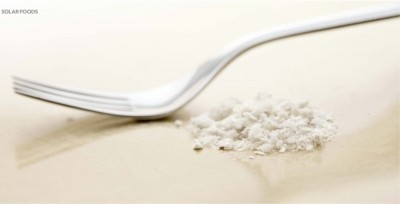‘We will be the largest pea manufacturer in Europe’: COSUCRA invests in pea processing capacity

The project will see the renovation and upgrading of a former soybean plant in the Danish port city. The facility is currently owned by Danish logistic company AABT, a subsidiary of Fredericia Shipping, and will be operated in partnership between the two groups.
Bosly explained that this arrangement has the advantage of meaning COSUCRA will be able to get product to market at speed. “The process to refine vegetable protein used similar equipment for soy and pea. As the plant is not in use anymore, we [will] adapt the facility, refurbish existing equipment and install new [machinery] to implement our patented pea process. The main advantage is that we are able to be on the market already in 2020 and will be able to support the strong market demand we are observing.”
The move is part of COSUCRA’s €60m investment in Belgium and Denmark to ‘strengthen’ its position in the ‘booming’ market as ‘the European based leader of premium pea protein and natural dietary fibre’, Bosly said. In 2018, the group invested €35m to increase capacity at its pea plant in Belgium.
COSUCRA supplies pea-based ingredients to food sector customers under its Pisane brand. The company is targeting a 50% increase in revenue over the next 3-5 years. While declining to share an exact number in relation to the target, Bosly noted: “With two plants in operation, COSUCRA will be the largest manufacturer in Europe.”
Pea protein and the plant-based boom
Sales of plant-based products are thriving in Europe. According to research firm Mordor Intelligence, the plant-based sector in the region is expected to reach a market value of €2.3bn by 2024, representing a compound annual growth rate of 7.4% from 2019.
COSUCRA believes that within this pea represents a distinct opportunity. Citing data from Mintel, Bosly stressed product launches containing pea are outperforming those from other alternative protein sources, such as soy.
“Plant based is in the spotlight everywhere and for everybody. Soy is growing fast, like any vegetable protein, but pea is growing faster. According to Mintel the new launch of meat analogues containing pea has multiplied by four times in the past five years (2013-2018). During the same period the new launch of meat analogues containing soy multiplied by 2.3 times,” he told FoodNavigator.
In terms of category opportunity, he said that milk alternatives are currently the largest segment but predicted plant-based meat analogues will deliver greatest growth. “Today the largest segment remains the non-dairy beverages… But everybody is looking at meat substitutes. Indeed, even a small shift in the consumption of meat towards plant-based could represent huge volume. Other segments are also shifting to plant-based like non-dairy yogurt or fish substitutes.”
Pea protein: good for you, good for the planet
Consumers and food sector customers are particularly attracted to pea-based solutions because they are seen as offering nutritional and sustainability benefits, the executive told this publication.
COSUCRA cited research that found 67% of consumers believe pulses have a ‘positive impact’ on their health.
Indeed, pea is a high-quality protein source and one of the few plant-based proteins to contain all nine of the essential amino acids (although it is relatively low in methionine). Pea proteins are also iron rich, relatively easily digested and do not contain any of the top eight food allergens.
“The consumer is targeting alternatives to meat and knows that pea proteins are as healthy as animal protein. Pea is considered as ethical, as it combines environmental benefits for our planet and animal welfare,” Bosly claimed.
COSUCRA’s approach to sourcing and production lends credence to its claim to ‘sustainability’.
The new facility will process local peas from the Baltic region, transported by sea-vessel to the plant. This ‘unique situation’ gives COSUCRA close access to the new EU pea growing areas of Denmark, Lithuania, Poland and Sweden.
“Moreover, pea cultivation is very competitive in Europe. Indeed, the yield of pea is almost double that what can be achieved in North America (4-5 T/ ha versus 1-2 T/ ha),” Bosly said.
The project also aims to minimise the CO2 footprint of the process by transforming the secondary products into biogas through an agreement signed with a local biogas plant. “COSUCRA’s optimised energy process allows us to offer a PISANE with a CO2 footprint of 4MT/T which is far lower than other protein alternatives,” Bosly claimed.

































